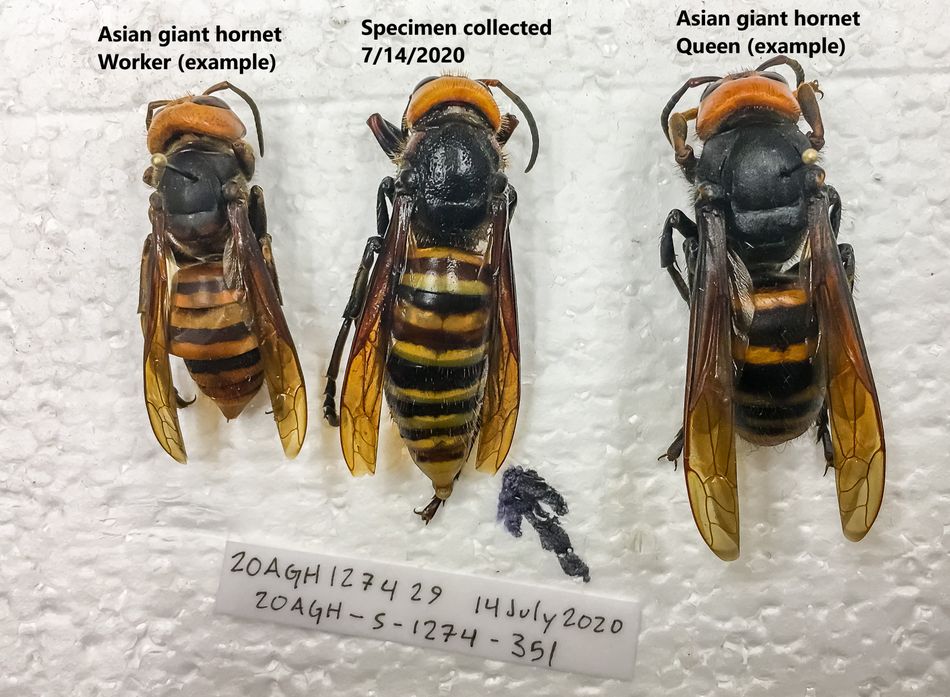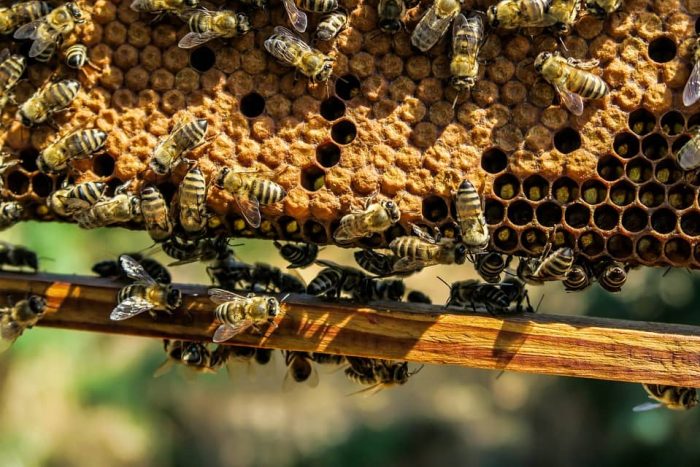First Asian giant hornet caught in Washington
The Asian giant hornet can wipe out a colony of bees in a few hours. Is it a threat to humans? Does a giant hornet sting hurt? How big is the Asian giant hornet?
The Asian giant hornet , which can be up to 5.5 centimeters long , was first seen in May. This bee hunter is not only a danger to bees , but also a threat to humans .
On July 14, an Asian giant hornet was caught in a trap set near Birch Bay, south of the Canadian border.
On July 29, it was officially identified and became the first of the species to be captured in the United States.
This capture represents an advance in the fight against this invasive species.

Asian giant hornet a danger to bees
As we have explained , an invasive species , whether it is an animal, plant or other organism, moves to a new ecosystem, it grows rapidly because there are no natural predators in the territory. Thus, it becomes a threat to the ecosystem , endangering native biological diversity.
This is especially concerning for honey or house bees, as Asian giant hornets feed on insects and it doesn’t take more than a few dozen to tear apart a hive.
The bees themselves are in decline, and are essential for pollination .
They can destroy entire hives in a few hours using their “jaws shaped like barbed shark fins” to decapitate their prey, according to the New York Times .

Once trapped, the hornets can be tracked and taken to the colonies by researchers .
It is very important to eliminate them before mid-September because that is when more queens will arrive, making more nests grow.
A threat to humans
Asian giant hornets are a threat to us too.
Does the giant hornet sting hurt? Of course. Their sting is many times stronger than that of a domestic bee, and many stings can be fatal.
It hurts like “being stabbed with a super-hot needle ,” said Shunichi Makino, a wasp and bee specialist at the Japan Forestry and Forest Products Research Institute.
Although bees have more toxic venom than giant hornets, bees can only sting you once , while giant hornets can sting you multiple times and can inject you with 10 times more venom.
It’s not like they’re hunting humans, but they’re aggressive and territorial, so they might attack a human if they invade their space.
Sources consulted: [ Mashable , Gizmodo , National Geographic ]


